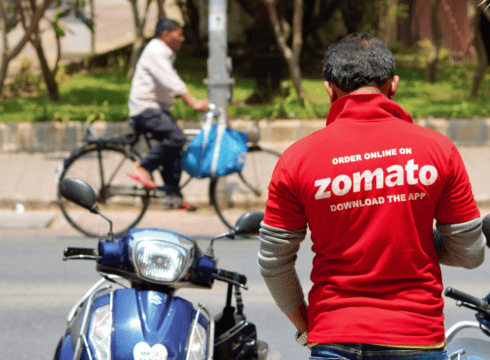Taking to X, Zomato said, “pls avoid ordering during peak afternoon unless absolutely necessary.”
However, the post by the company sparked a major debate on the social media platform and received criticism from netizens
Last month, Zomato’s subsidiary Blinkit also faced protests from delivery executives in Delhi and Mumbai which disrupted their services in parts of these cities
Inc42 Daily Brief
Stay Ahead With Daily News & Analysis on India’s Tech & Startup Economy
As India continues to reel under a severe heatwave, foodtech major Zomato asked its customers to refrain from ordering food during peak afternoon hours until absolutely necessary.
Several parts of India have been witnessing record-breaking temperatures for the past couple of weeks and the Indian Meteorological Department (IMD) has predicted that it will continue to prevail for the next few days.
Taking to X, Zomato said, “pls avoid ordering during peak afternoon unless absolutely necessary.”
This post by the company has sparked major debate on the social media platform.
Responding to the post, one user commented, “Why don’t instead suspend your services during peak afternoon?”
Another user said, “Stop virtue signalling. Shut your services during the peak heat period, pay your “delivery partners” decent wages, give them health care and employee benefits.”
Meanwhile, a user suggested shutting the service during afternoon hours, saying, “Bro, you are in food services and people order food when it is absolutely necessary. If you actually care about your employees, you would be posting “Our services are unavailable during peak afternoon hours.”
However, some users were considerate of Zomato’s appeal and wrote, “Though I appreciate the concern, lunchtime orders cannot be postponed to dinner time. If so, Zomato needs to identify ‘absolutely necessary’ orders and not-so-necessary orders.”
A few users also suggested increasing charges during peak heat hours. For instance, a user said, “I hope you consider doubling delivery charges during peak hours or suspending services altogether. Either way, prioritizing your riders’ well-being is what you are talking about. Or you can mandate a minimum tip!.”
It is pertinent to note that Delhi NCR region accounts for the major chunk of Zomato’s overall orders.
Following implementation in parts of Mumbai and Bengaluru, Zomato expanded its priority food delivery offering in Delhi, Hyderabad and Pune last month.
In the same month, Zomato’s subsidiary Blinkit also faced protests from delivery executives in Delhi and Mumbai which disrupted their services in parts of these cities.
To address this problem, Blinkit offered higher payouts (on par with what the company pays during so-called surge hours) on Sunday and Monday. The company also witnessed similar protest last year.
Not to mention, Zomato saw a 26% increase in consolidated profit after tax (PAT) in the quarter ended March 31 of FY24. Its PAT was at INR 175 Cr in Q4 FY24 from a net loss of INR 187.6 Cr in Q4 of FY23.
Apart from this, the company on a broader level has been going through several developments in recent times.
Recently, the company was said to be mulling over lending its restaurant partners and was reportedly in discussions with several NBFCs around this. Zomato’s average monthly active restaurant partners surged to 2.70 Lakh by FY24 from 61,000 in FY19.
As India witnesses a surge in smartphone penetration, there is a likely increase in the adoption of online food ordering. Hence, the food delivery market in the country is expected to rise rapidly and have 34.66 Cr users by 2028, as per Statista.
{{#name}}{{name}}{{/name}}{{^name}}-{{/name}}
{{#description}}{{description}}...{{/description}}{{^description}}-{{/description}}
Note: We at Inc42 take our ethics very seriously. More information about it can be found here.


